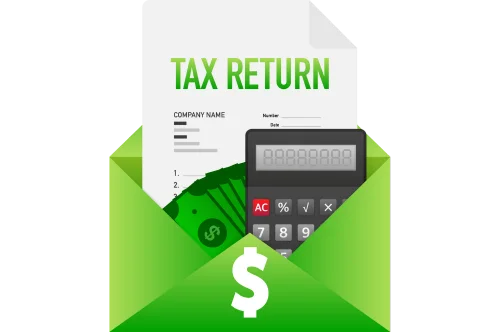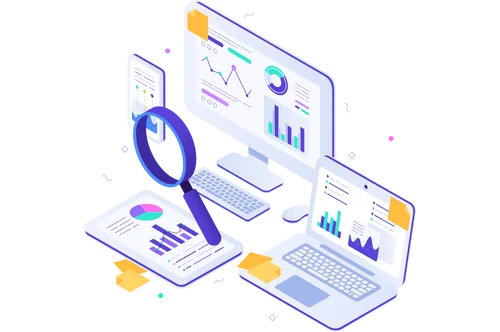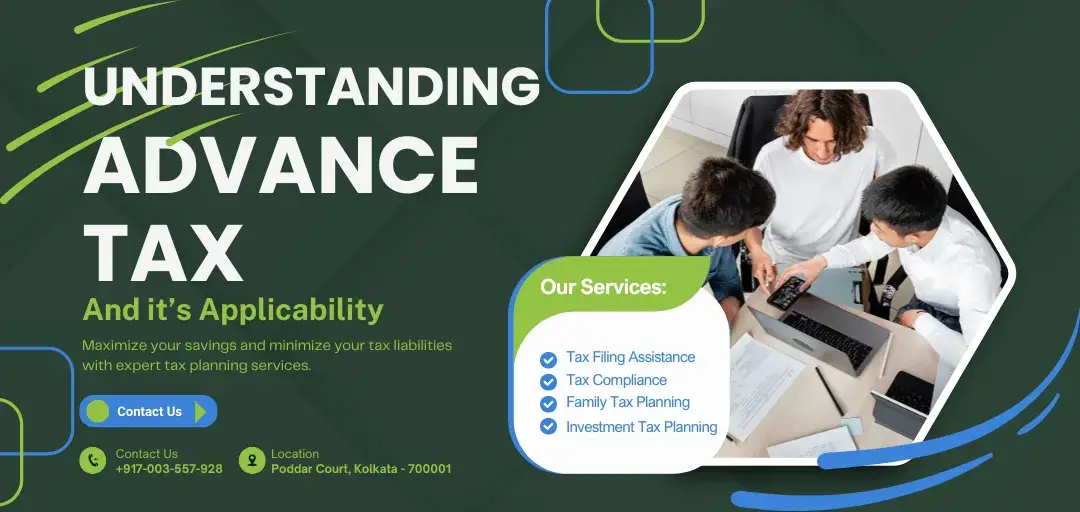Understanding Advance Tax and Its Applicability
In the world of taxation, it’s essential for taxpayers to stay ahead of their tax obligations. One of the key components of income tax in India is Understanding Advance Tax. This provision aims to make sure that taxpayers don’t face a sudden financial burden when it’s time to pay their annual taxes. Instead, they pay their taxes in smaller installments throughout the year, making it easier to manage and ensuring timely tax compliance. This article will provide a thorough understanding of advance tax, its applicability, and the process to ensure you stay compliant with the law.
What is Advance Tax?
Understanding Advance Tax refers to the payment of income tax in installments before the end of the financial year, rather than paying it all at once at the time of filing the return. Under the Income Tax Act of 1961, the Government of India introduced this scheme to collect taxes in advance, as it helps with the government’s liquidity while easing the burden on taxpayers.
Advance tax is paid by individuals, businesses, and other entities that have a substantial tax liability. The amount is calculated based on the expected annual income, and taxes are paid in installments according to specified due dates. In essence, Understanding Advance Tax allows taxpayers to spread their tax liabilities over the course of the year instead of facing the burden all at once during the end-of-year filing.
Who Needs to Pay Advance Tax?
Not all taxpayers are required to pay advance tax. Understanding Advance Tax helps to determine whether you fall under the category of taxpayers required to make such payments. The following groups must pay advance tax:
- Individuals, Hindu Undivided Families (HUFs), and Associations of Persons (AOPs) whose estimated tax liability for the year is ₹10,000 or more.
- Companies and Firms are generally required to pay advance tax, as their tax liability tends to be substantial.
- Self-employed individuals whose income does not have TDS deducted at source are also obligated to pay advance tax if their total liability exceeds ₹10,000.
Even if your tax is deducted at source (TDS), you might still need to pay advance tax if the TDS is insufficient to cover your total tax liability.
When Should You Pay Advance Tax?
The concept of Understanding Advance Tax extends to adhering to the prescribed schedule of payments. Taxpayers must pay advance tax in installments, which are due on the following dates:
- June 15th – At least 15% of the estimated tax liability
- September 15th – At least 45% of the estimated tax liability (including the first installment)
- December 15th – At least 75% of the estimated tax liability (including previous installments)
- March 15th – 100% of the estimated tax liability (the final installment)
It is crucial to keep these dates in mind to avoid penalties or interest for late payments. Understanding the due dates and staying ahead of your tax obligations is part of Understanding Advance Tax.
How to Calculate Advance Tax?
Calculating advance tax involves estimating your annual income and applying the appropriate tax rates to determine the amount you owe. Understanding Advance Tax requires careful consideration of your income sources, deductions, and exemptions. Here’s how you can calculate your advance tax liability:
- Estimate Total Income: Consider all sources of income, including salary, business profits, rental income, and capital gains.
- Apply Applicable Deductions and Exemptions: Subtract allowable deductions such as those under Sections 80C, 80D, 80G, and others, which can help lower your taxable income.
- Determine the Tax Liability: Apply the income tax slabs to the remaining income after deductions to calculate the total tax payable.
- Apply TDS: If any tax has already been deducted at source (TDS), subtract it from your total tax liability to get the net amount of tax payable as advance tax.
Once you have calculated your liability, you need to pay it in the prescribed installments, following the schedule mentioned earlier.
Consequences of Not Paying Advance Tax
Failure to pay advance tax on time can lead to penalties and interest, which can add up to a significant amount. Understanding Advance Tax also means understanding the consequences of non-payment or delayed payment. The Income Tax Act levies interest under the following sections:
- Section 234B: If you fail to pay the required advance tax, interest will be charged at the rate of 1% per month or part of the month on the amount of tax payable, from the due date of the installment until the date of actual payment.
- Section 234C: If the advance tax paid is less than the prescribed amount in the installment, interest will be charged at the rate of 1% per month on the shortfall.
To avoid these penalties, it is crucial to stay informed and ensure timely payment of advance tax.
How to Pay Advance Tax?
Paying advance tax is a simple process, and it can be done online or offline. Understanding Advance Tax involves knowing the payment process and the options available:
- Online Payment: The most common method is through the Income Tax Department’s official website. After logging in, navigate to the “e-Pay Tax” section, select the appropriate challan (ITNS 280), fill in the details, and make the payment via net banking, debit/credit card, or other available methods.
- Offline Payment: Alternatively, you can make advance tax payments at designated banks using a physical challan. However, this method is less convenient compared to online payments.
After making the payment, ensure that you keep the receipt as proof of payment for future reference and for filing your income tax return.
Exemptions from Advance Tax
While Understanding Advance Tax requires awareness of who must pay, it is also important to know when you can be exempt from paying advance tax. Some of the cases where taxpayers may be exempt from paying advance tax include:
- Salaried Employees: If your only source of income is your salary, and if your employer is deducting the appropriate TDS, you are not required to pay advance tax. However, if you have additional income that is not subject to TDS, you may be required to pay advance tax on that income.
- Low Tax Liabilities: If your total tax liability after deductions and exemptions is less than ₹10,000, you are exempt from paying advance tax.
- Losses: If your business or profession is running at a loss and you expect no taxable income, you may be exempt from advance tax payments.
Conclusion
Understanding Advance Tax is crucial for taxpayers, especially those who have significant income that isn’t subject to TDS. Regular payment of advance tax ensures you avoid penalties, stay compliant with tax laws, and maintain smooth cash flow. Whether you’re a salaried employee, business owner, or self-employed individual, understanding the intricacies of advance tax can help you better manage your financial obligations and avoid unexpected burdens at the end of the financial year.
By staying proactive, calculating your tax liability early, and making timely payments, you not only fulfill your legal duties but also contribute to the nation’s economy, ensuring a more stable and predictable financial future for yourself. Therefore, always keep track of your tax obligations and make sure you are up to date with Understanding Advance Tax.
Our Tax Services

ITR Filing
ITR Filing services provide full assistance with Income Tax Return submissions, ensuring accurate and timely compliance with all tax regulations and statutory requirements for both individuals and businesses.

Tax Audit
A tax audit reviews financial records to ensure compliance with tax laws, verifying income, deductions, and expenses. It minimizes errors and helps businesses avoid penalties, ensuring accurate tax reporting.

E-Commerce Tax Services
Navigating taxes as an e-commerce seller can be challenging due to the unique complexities of online businesses. Here’s a quick overview of the essential tax services that can help simplify compliance and optimize tax savings





